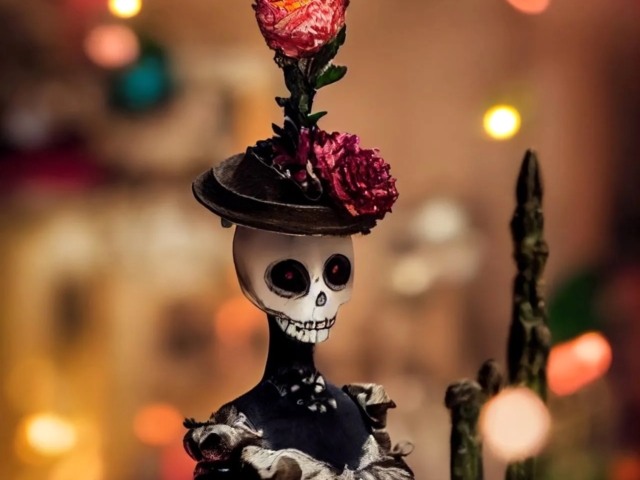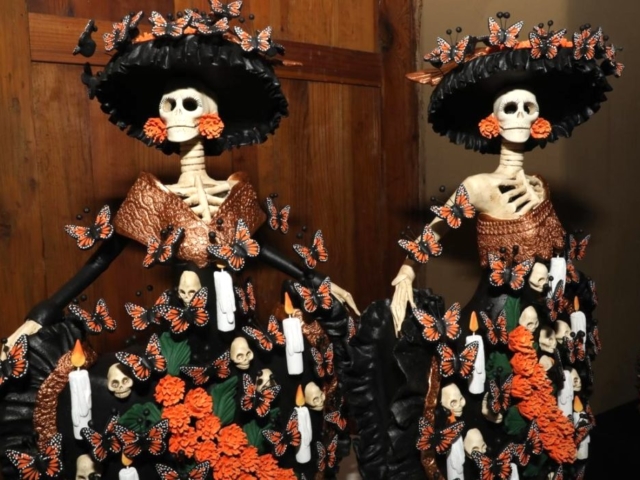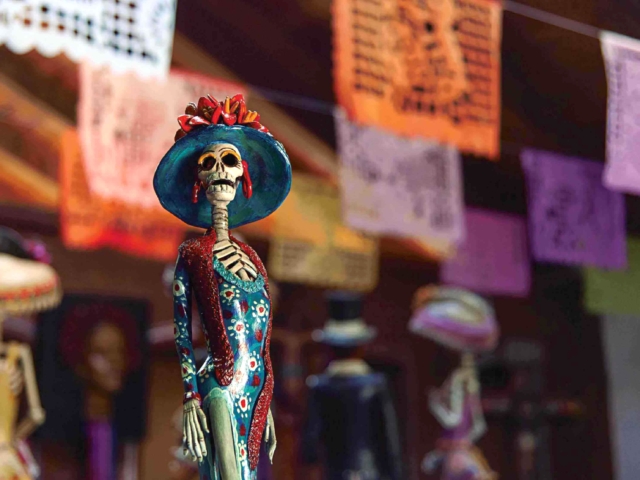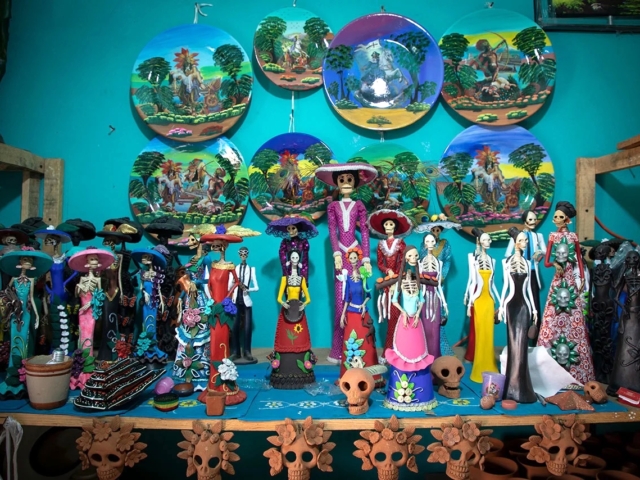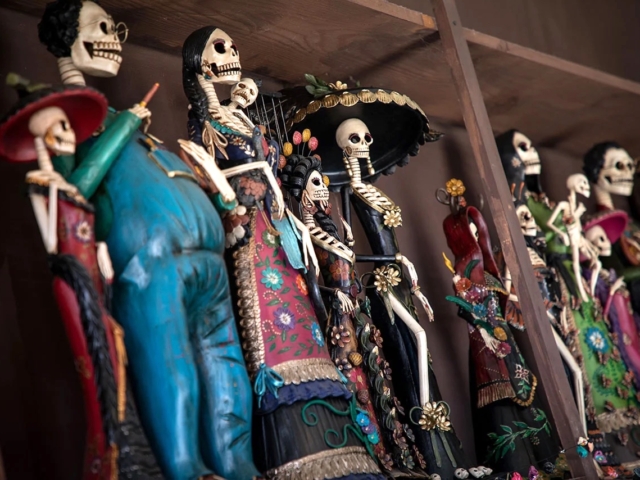
Adress
Capula, Michoacán, México.
GPS
19.6735957, -101.3915204
KNOW MORE PLACES
VISITA OTRAS LOCALIDADES
The Catrinas of Capula are an artisanal jewel of Michoacán. Their history dates back to the 16th century when Vasco de Quiroga, a visionary bishop, promoted pottery among the natives. This is how the workshops in Capula were born, a town that today is synonymous with beautiful clay creations.
The figure of the Catrina, which we see today, was originally created by artist José Guadalupe Posada in the early 20th century. It is an elegant skeletal figure wearing high society clothing, and was popularized by muralist Diego Rivera in his famous mural “Dream of a Sunday Afternoon in the Alameda Central.”
En Capula, los artesanos han perfeccionado el arte de las catrinas de barro, creando piezas únicas con detalles increíbles en la textura de la piel y la vestimenta. Estas obras no son solo decorativas, sino que reflejan la alegría y el respeto con que los mexicanos de Michoacán celebramos la vida y recordamos a los que ya no están con nosotros.
A key character in the evolution of the catrina is Juan Torres Calderón, a visual artist and sculptor originally from Morelia. Inspired by Posada’s engraving and Rivera’s mural, Torres decided to give three-dimensionality to the clay catrina. In 1980, Torres opened a workshop in Capula and began to mold these figures, taking advantage of the rich pottery heritage of the area. In addition, Torres founded an art school to teach locals how to create catrinas, which transformed the town’s main activity.
Visiting Capula is a magical experience, especially during the Day of the Dead. Catrina Fair attracts artisans and visitors from around the world, offering the opportunity to see the creative process up close, meet talented craftspeople and acquire unique pieces.
The Catrinas of Capula are not just pretty figures; they symbolize a philosophy of life that celebrates existence and faces death without fear.

